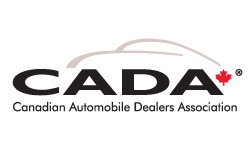By Blair Qualey,
We’ve all had that moment on the road when another driver is following a little too closely for comfort. You glance in the rearview mirror and there they are, riding your bumper even though there’s no space for you to accelerate or change lanes. It’s stressful, frustrating, and, as a new ICBC survey reminds us, far too common in British Columbia. It comes as no shocker then, that the survey found that 97 per cent of drivers in British Columbia say they dislike being tailgated, and nearly three out of four rank it among the most frustrating behaviours they encounter on the road.
What’s interesting is that while most people notice when someone else is tailgating them, they are far less likely to realize when they’re doing it themselves. The data from the survey shows a significant gap between perception and reality. Many drivers overestimate how much space they leave, especially in stop-and-go traffic or when they’re in a rush (As anyone hitting Lions Gate during rush hour can attest to). Tailgating may feel like a way to signal impatience or urgency, but in reality, it just puts everyone on the road at risk, including you.
ICBC’s campaign is sounding the alarm on this dangerous driving habit. Rear-end crashes are one of the most common types of collisions in British Columbia, making up more than a third of all reported crashes. These are incidents that are often preventable, and tailgating is frequently to blame. Following too closely reduces your reaction time, especially when something unexpected happens, like a sudden stop, a distracted pedestrian, or a lane change without warning. In heavy traffic or bad weather, the consequences of tailgating can be even more severe.
Now that summer travel season is underway, this is a good time for all of us to be a little more mindful. Whether you’re taking a road trip through the Interior or just commuting through the city, it’s important to leave a safe distance between you and the vehicle ahead. ICBC recommends the three-second rule: when the car in front of you passes a fixed object, such as a signpost or tree, it should take you at least three seconds to reach the same point. If you’re driving at high speeds or in poor weather, add even more time to that buffer.
Of course, many newer vehicles on the road today are equipped with safety features designed to help reduce collisions. Forward collision warning systems and adaptive cruise control can automatically maintain a safe distance and alert drivers when they’re getting too close. These technologies can help, but they are not a replacement for safe driving habits. Ultimately, it’s up to every driver to make smart, courteous choices behind the wheel.
At the New Car Dealers Association of BC, we support efforts like ICBC’s to raise awareness and promote road safety. Whether the issue is tailgating, distracted driving, impaired driving, or speeding, these are behaviours that can and should be avoided. Everyone deserves to feel safe on the road, and that includes not feeling pressured or intimidated by the vehicle behind them. Courtesy costs nothing, but it can make a world of difference.
So next time you feel the urge to push the pace, take a breath and ease off the gas. Giving other drivers a little more space isn’t just polite, it could save a life.
Blair Qualey is President and CEO of the New Car Dealers Association of BC. You can email him at [email protected].









